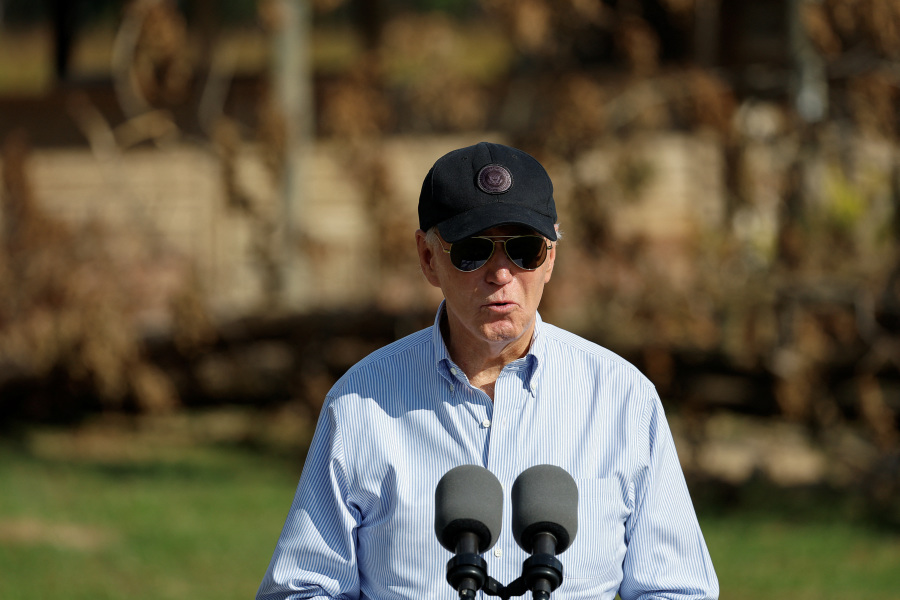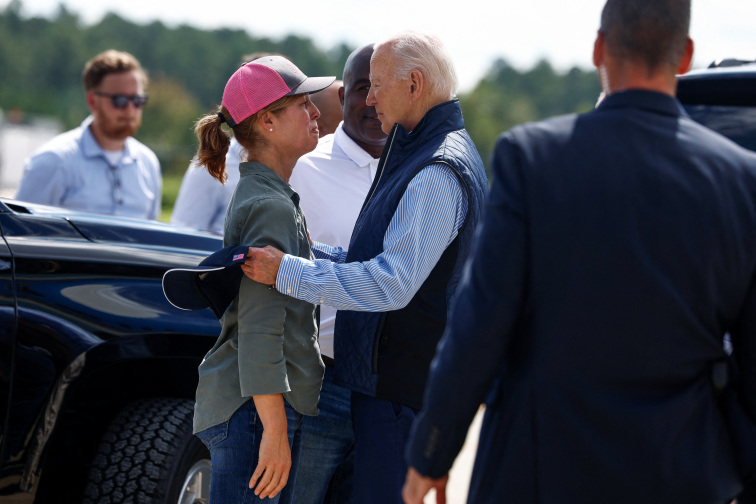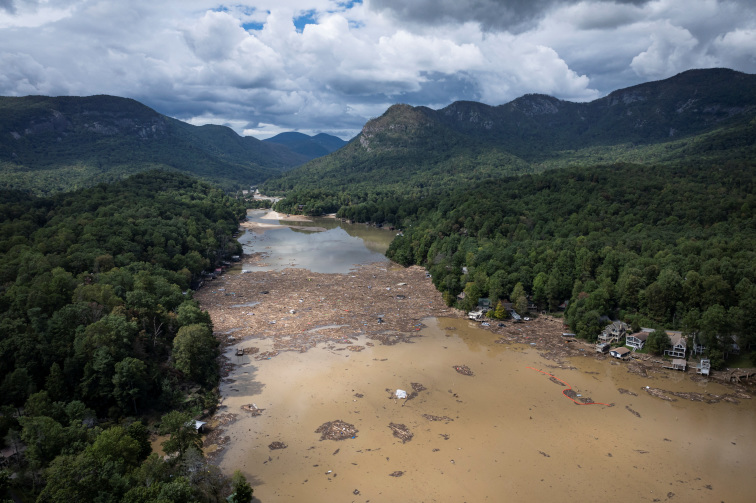U.S. President Joe Biden delivers remarks, as he visits storm-damaged areas in the wake of Hurricane Helene, at Shiloh Pecan Farm, near Valdosta, Georgia, U.S., October 3, 2024. (REUTERS/Tom Brenner)
(Reuters) -A U.S. judge on Thursday temporarily blocked Democratic President Joe Biden's administration from implementing a plan to forgive student loan debt held by millions of Americans.
The ruling by St. Louis-based U.S. District Judge Matthew Schelp handed a victory to six Republican state attorneys general who challenged Biden's plan.
Schelp, an appointee of Republican former President Donald Trump, issued a preliminary injunction blocking the Biden administration from "mass canceling" student loans and forgiving principal or interest under the plan pending the outcome of the state's lawsuit.
Schelp ruled after another judge on Oct. 2 transferred the litigation from Georgia and removed that state from the case by finding it would not experience any legal harm under the debt relief plan.
The state attorneys general have accused the U.S. Department of Education of overreaching its authority by proposing a regulation that instead should be addressed through legislation in Congress.
The department proposed it in April after two previous plans were blocked by the courts. It would forgive $73 billion in student loan debt held by an estimated 27.6 million borrowers.
Biden campaigned for president in 2020 with a pledge to bring debt relief to millions of Americans who turned to federal student loans to fund their costly higher education.
The lawsuit was filed in Georgia, where U.S. District Judge J. Randal Hall in September issued a temporary block on the plan, though that expired on Oct. 3. Hall is the judge who moved the case to Missouri.
Schelp on Thursday said he agreed with Hall that the relief program should be halted until courts have had a chance to decide whether it is legal.
"Allowing Defendants to eliminate the student loan debt at issue here would prevent this Court, the U.S. Court of Appeals, and the Supreme Court from reviewing this matter on the backend, allowing Defendants’ actions to evade review," Schelp wrote.
Missouri Attorney General Andrew Bailey, a Republican, in a statement called the ruling “yet another win for the American people."
"The Court rightfully recognized Joe Biden and Kamala Harris cannot saddle working Americans with Ivy League debt," Bailey said.
The U.S. Department of Education did not immediately respond to a request for comment.
Under the proposed regulation, debt relief would be granted to: people who owe more than they first borrowed due to the interest that has accrued; those who have been paying off loans for at least 20 or 25 years, depending on the circumstances; and borrowers who were eligible for forgiveness under prior programs but never applied.
The rule has not yet been finalized, a point the U.S. Justice Department made in arguing there was no final agency action for a judge to review in the first place.
The states argued that the administration was laying the groundwork to immediately cancel loans once the rule became final before any challenger could sue to stop it. They said that upon publication of the regulation, the Education Department would be able to instruct loan servicers to immediately process the debt forgiveness.
The attorneys general said such action would occur in the run-up to the Nov. 5 presidential election pitting Democratic candidate Kamala Harris, who is vice president under Biden, against Republican rival Trump, and that the administration would seek political credit for the policy.
The White House has called the current student loan system broken and has said debt relief is necessary to ensure that borrowers are not financially burdened by their decision to seek higher education.
Republicans counter that Biden's student loan forgiveness approach amounts to an overreach of authority and an unfair benefit to college-educated borrowers while others receive no such relief.
(Reporting by Daniel Wiessner in Albany, New York and Nate Raymond in Boston, Editing by Will Dunham, Alexia Garamfalvi and David Gregorio)








News magazine bootstrap themes!
I like this themes, fast loading and look profesional
Thank you Carlos!
You're welcome!
Please support me with give positive rating!
Yes Sure!